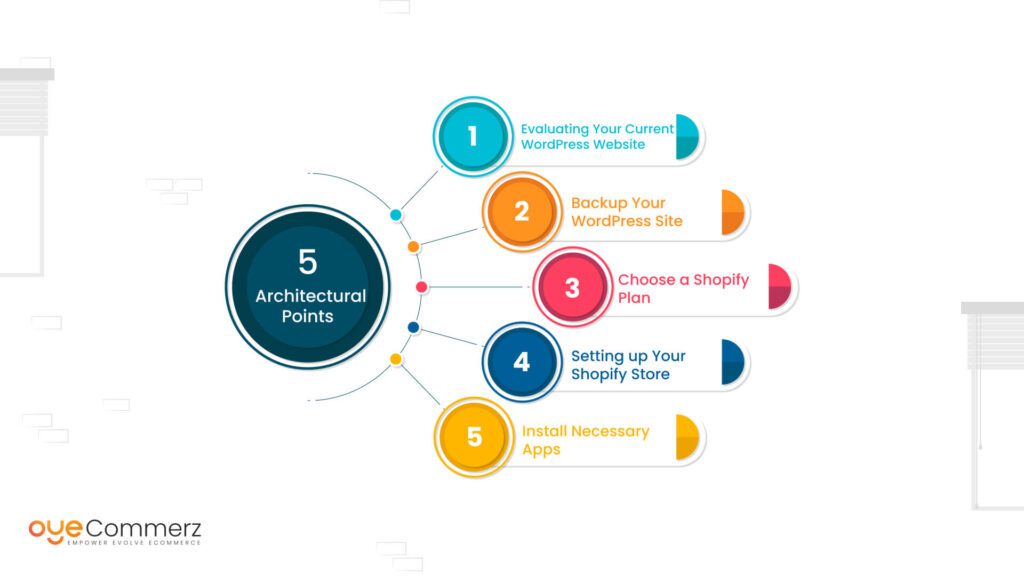In the dynamic world of eCommerce, choosing the right platform is vital for your business's success. If you’re presently using WP and planning a migration to an alternative, you’re not the only one. Many businesses are shifting to utilize Shopify’s robust features, simplicity, and growth potential. This guide will walk you through the process of migrating from WordPress to this platform smoothly, making sure that you realize your eCommerce potential.
Why Transition from WP to this platform?
Ahead of starting the migration procedure, it’s crucial to realize why this transition can be advantageous for your eCommerce business:
User-Friendly Interface: Shopify offers an intuitive interface that simplifies store management, making it easier for non-technical users.
Scalability: As your brand expands, Shopify can handle greater traffic and sales without affecting performance.
Integrated Features: Shopify comes with pre-installed features for SEO, analytics, payment management, and more, eliminating the requirement for several plugins.
Robust Protection: With Shopify, you utilize strong security protocols that secure sensitive customer details.
Steps for a Effortless Migration
Migrating your digital shop from WP to Shopify requires multiple phases.
Here’s steps to achieve a successful transition:
Outline Your Migration Plan
Begin by mapping out your migration blueprint. Decide on which elements of your current site you want to move, such as:
Item details
Client data
Transaction records
Blog content
Select the Appropriate Migration Package
Considering your requirements, opt for a migration service that fits your eCommerce goals. Migration experts delivers several options:
Entry-Level Plan: Suitable for compact stores with fewer products.
Mid-Tier Plan: Appropriate for medium-sized businesses with more complex needs.
Premium Migration Package: Perfect for big stores requiring broad customization.
Backup Your Data
Ahead of starting the migration, make sure that you have a complete backup of your WordPress site. This task is critical in situations where anything goes wrong during the migration.
Extract Your Content from WordPress
Use tools or manual methods to transfer critical content from your WP site:
Items
Clients
Transactions
Articles
Import Data into Shopify
Once you have your data extracted, utilize Shopify’s import tools or external apps to transfer your data into your new store. Ensure that all data is correctly formatted and arranged.
Personalize Your Shopify Store
Once importing information, tailor your Shopify platform’s layout to align with your style. Think about hiring a designer if you need advanced customization.
Establish Payment Gateways and Delivery Settings
Arrange billing solutions and logistics options in Shopify to ensure a user-friendly transaction experience for customers.
Implement SEO Best Practices
To maintain your online visibility during the change:
Implement 301 link updates from existing URLs to new ones.
Refresh metadata.
Adjust visual content and content for search engines.
Test Your New Store
Prior to going live, extensively check your new store. Check for any broken links, payment processing issues, or missing data.
Publish Your Platform
After everything is in order, it’s the moment to go live! Announce the transition hire Shopify developers to your customers and encourage them to discover the updated offerings of your Shopify store.
Post-Migration Guidance
Post launching your new store, regular support is key. Think about partnering with service providers who can guide with:
Site maintenance
Customer engagement
Enhancing features
Conclusion
Migrating from WordPress to Shopify can be a transformative move for your eCommerce. By using this guide and utilizing tools like those offered by dedicated providers, you Shopify for online entrepreneurs can ensure a effortless transition that improves your digital storefront. Accept the shift and discover the potential of Shopify today!
